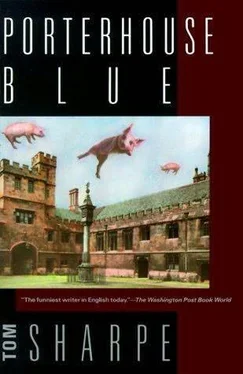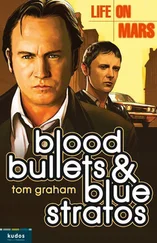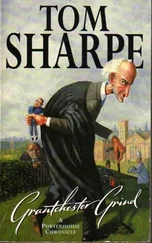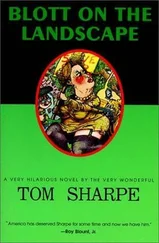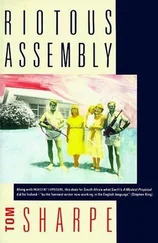“Doctoratitis. The assumption that a man’s worth is to be measured by mere diligence. A man spends three years minutely documenting documents if you understand my meaning, anyway investigating issues that have escaped the notice of more discriminating scholars, and emerges from the ordeal with a doctorate which is supposed to be proof of his intelligence. Than which I can think of nothing more stupid. But there you are, that’s the modern fashion. It comes, I suppose, from a literal acceptance of the ridiculous dictum that genius is an infinite capacity for taking pains. These fellows seem to think that if you can demonstrate an appetite for indigestible and trivial details for three years you must be a genius. In my opinion genius is by definition a capacity to jump the whole process of taking infinite pains, but then as I say, nobody listens to me. I mean there must be millions of people taking whatever these infinite pains are without a spark of intelligence let alone genius between them. And then again you have a silly fellow like Einstein who can’t even count… It depresses me, it really does, but it’s the fashion.”
The Dean waved his hands as if to exorcize the evil spirit of his time and Carrington ventured to intervene.
“But surely research does pay off…” he suggested.
“Pay?” said the Dean, “I daresay it does. It certainly earns some colleges a great deal of money. Again you have this absurd assumption that provided you purchase enough sows’ ears one of them is bound to turn into a silk purse. Utter nonsense, of course. It’s the quality that counts not the quantity but then I don’t expect you to sympathize with my old-fashioned point of view. When all’s said and done it’s quantity that’s made your reputation, isn’t it?”
“Quantity?”
“Megaviewers,” said the Dean. “It seems an appropriate if nasty expression.”
By the time Cornelius Carrington left the Dean’s rooms the erosion of his self-respect was almost complete and the comfortable acceptance of himself as the spokesman of a wholesome public concern quite gone. In the Dean’s eyes he was clearly a parvenu, a jack in the box, he had suggested with a smile, and Carrington had found himself sharing the Dean’s opinion. He walked out of Porterhouse envying the man his assurance and cursing himself for his inability to cope. What concrete and system-built housing was for him, he clearly was for the Dean, evidence of a facile and ugly commercialism. What had the Dean said? That he found the ephemeral distasteful, and there had been no doubt that of all ephemera he found television commentators the least to his liking. Carrington walked down Senate House Lane debating the source of the Dean’s assurance. The man’s lifetime spanned the coming of pebble-dash and the mock-Tudor suburbs Carrington found so appealing. He belonged to an earlier tradition. The Toby Jug Englishman, Squarson’s and squires who didn’t give a tuppenny damn what the world thought of them and bloodied the world’s nose when it got in their way. In this mood of self-recrimination at his unalterable deference to such men, Carrington found himself in King Street. He wasn’t at all sure how he had got there and at first found it difficult to recognize. King Street had changed more than any other part of Cambridge. The houses and shops that had stood huddled together down the narrow street were gone. A concrete multi-storied car park, a row of ugly brick arcades. And where were all the pubs? Walking down the street Carrington forgot his own demolition. A sense of righteous anger gripped him. The old King Street had been shabby and dishevelled but it had been entertaining. Now it was bleak, impersonal and grim. A little further on he came to some remnants. An antique shop that had odds and ends of vases and bad paintings in its window. A coffee-shop cluttered with percolators and the more intricate jugs that undergraduates still evidently cultivated. But for the most part the developers had done their damnedest, finally he came to the Thames Boatman and grateful to find it still standing he went inside.
“A pint of bitter, please,” he told the barman with his usual sense of place. Gin and tonic in a King Street pub would have been unthinkable. He took his beer to a table by the window.
“Seem to have been a lot of changes since I was here last,” he said, having taken a large swig from his beer glass. He didn’t usually take large swigs. In fact he didn’t usually drink beer at all, but beer in large swigs was, he remembered, customary in King Street.
“Knocking the whole street down,” said the barman laconically.
“Must be bad for business,” Carrington suggested.
“’Tis and it isn’t,” the barman agreed.
Carrington gave up the attempt to make conversation and turned his attention to the more responsive decorations of the bar-room.
A short time later a man in a bowler hat entered the bar and ordered a Guinness. Carrington studied his back and found a vague familiarity there. The dark overcoat, the highly polished shoes, the solid neck and above all the square set of the bowler hat, all these were tokens of a college porter. But it was the pipe, the jutting bulldog pipe, that woke his memory and told him this was Skullion. The porter paid for his Guinness and took it to the table in the corner and lit his pipe. A waft of blue smoke reached Carrington. He sniffed, and in that sniff the years receded and he was back in the Porter’s Lodge in Porterhouse. Skullion. He had forgotten the man and his stiff, wooden, almost military ways. Skullion standing like some heraldic beast at the College gate or seen from his rooms above the Hall, a dark helmeted figure marching across the Court in the early morning, his attendant shadow jutting above the crenellations cast by the morning sunlight on the lawn. The pipe at the gates of dawn, Carrington had once called him but there was nothing of the dawn about the Porter now. He sat over his Guinness and sucked his pipe and scowled unseeingly. Carrington studied the heavy features and was struck by the grim strength of the face below the brim of the bowler hat. If the Dean had prompted the thought of Toby Jugs, Skullion called to mind an older type than that. Something almost Chaucerian about the man, Carrington thought, relying for this assessment on vague memories of The Prologue . Certainly medieval. But above all it was the impressiveness of the man that struck him most. Impressive was the word for the face that stared out across the bar. Carrington drank his beer and ordered another. As he waited for it he crossed to the table where Skullion sat.
“It’s Skullion, isn’t it?” he asked. Skullion looked up at him doubtfully. “What if it is?” he asked, adopting the impersonal pronoun as if to avoid an intrusion on his privacy.
“I thought I recognized you,” Carrington went on. “You probably wouldn’t remember me, Carrington. I was up at Porterhouse in the thirties.”
“Yes, I remember you. You had rooms over the Hall.”
“Let me get you another drink. Guinness, isn’t it?” And before Skullion could say anything Carrington had turned back to the barman and was ordering a Guinness. Skullion regarded him morosely. He remembered Carrington all right. Bertie they used to call him. Flirty Bertie. Not a gentleman. He’d been something in the Footlights. Skullion hadn’t approved of him.
Carrington brought the glasses across and sat down. “I suppose you’ve retired now,” he asked presently.
“Not what you might call retired,” Skullion said grimly.
“You mean you’re still Head Porter after all these years? My goodness, you have been there a long time.” He spoke with the affected eagerness of an interviewer, and indeed something about Skullion had awoken in him the feeling that there was a story here. Carrington had a nose for these things.
Читать дальше
